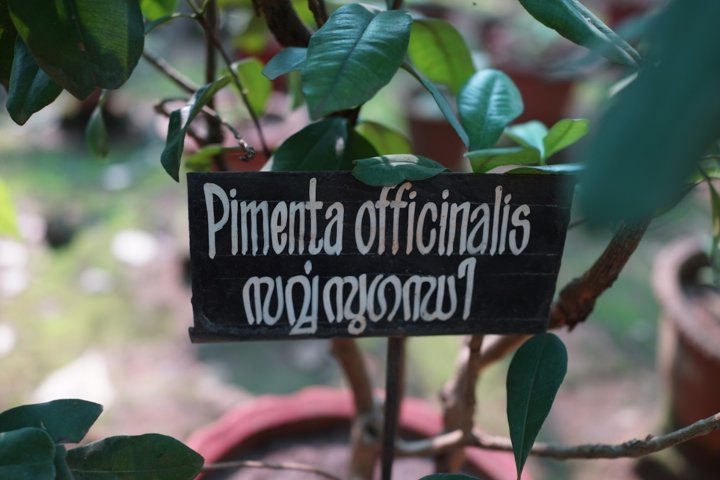 INDIA, July 19, 2018 (Reported by M. Bernard and A. Clemencon, translated from French): The AVP Ayurvedic Hospital in Tamil Nadu maintains a vast conservatory garden where nearly 900 plants grow, the use of which is inseparable from traditional Indian medicine. Michel Bernard, a journalist, and Anne-Sophie Clemencon, photographer, made a trip to India from February 15 to April 15, 2018. From their meetings, they reported a logbook on various topics related to ecology. Towards the end of the treatment, we obtained permission from doctors to visit the conservatory garden and the factory that manufactures their ayurvedic products. The ensemble is located in Kanjikode, near Palakkad, Kerala. Two people were waiting for us: the head of the garden and an old man over 80, Professor Vasudevan Nair, taxonomist. Nair has been working for 65 years and knows the 900 plants of Kerala.
INDIA, July 19, 2018 (Reported by M. Bernard and A. Clemencon, translated from French): The AVP Ayurvedic Hospital in Tamil Nadu maintains a vast conservatory garden where nearly 900 plants grow, the use of which is inseparable from traditional Indian medicine. Michel Bernard, a journalist, and Anne-Sophie Clemencon, photographer, made a trip to India from February 15 to April 15, 2018. From their meetings, they reported a logbook on various topics related to ecology. Towards the end of the treatment, we obtained permission from doctors to visit the conservatory garden and the factory that manufactures their ayurvedic products. The ensemble is located in Kanjikode, near Palakkad, Kerala. Two people were waiting for us: the head of the garden and an old man over 80, Professor Vasudevan Nair, taxonomist. Nair has been working for 65 years and knows the 900 plants of Kerala.
At the entrance of the garden, the list of all the plants that are present and their therapeutic indication covers a whole wall. In time, the ancients developed medicines that depend entirely on nature. In Ayurvedic medicine, 90% of preparations are extracted from plants. In addition, there are some minerals and some animal products, especially cow’s milk. “Before this medicine, plants have always been used to eat. Our body is accustomed to these plants by generations and generations of humans fed on herbs.” Vasudevan Nair supports his demonstration by saying that “the largest animals are herbivores: elephants, rhinos, hippos” and that, according to him, one should be vegetarian to be in good health.
 Vasudevan Nair explains that “all plants are medicinal, but we do not yet know all the contributions they can have”. The garden is used to grow plants for study, to feed the plant, and also to help reproduce plants that have been known for a long time, but are endangered. Finally, gardeners make exchanges with other countries with a similar climate, mainly Brazil which, with the Amazon, has the largest reserve of plants in the world: more than 4,000 species and many different medicines. Brazil is for the Indians of the conservatory garden of Kanjikode a well of knowledge. They are studying whether it is possible to adapt these plants here, in Kerala, to benefit from their specificities.
Vasudevan Nair explains that “all plants are medicinal, but we do not yet know all the contributions they can have”. The garden is used to grow plants for study, to feed the plant, and also to help reproduce plants that have been known for a long time, but are endangered. Finally, gardeners make exchanges with other countries with a similar climate, mainly Brazil which, with the Amazon, has the largest reserve of plants in the world: more than 4,000 species and many different medicines. Brazil is for the Indians of the conservatory garden of Kanjikode a well of knowledge. They are studying whether it is possible to adapt these plants here, in Kerala, to benefit from their specificities.





